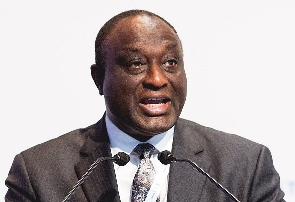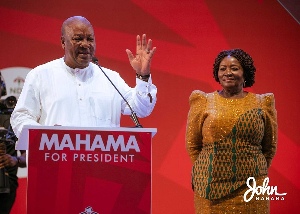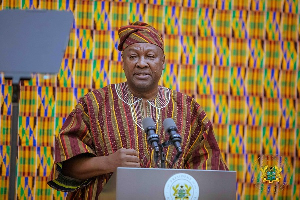The COVID-19 pandemic has negatively affected the gains that the Ghanaian economy has chalked.
The economy was doing fantastic pre-COVID-19 and the Ghanaian economy was one of the fastest-growing in the world averaging 7% annually.
In this first part of the series of my write-up on fixing the economy, I focus on Ghana's burgeoning Automotive industry and give an insight into how Wuhan developed its industry and how Ghana is on the right track to deliver and create jobs in that sector.
For Ghana to revive its economy post-COVID-19, there has to be national action of full-scale manufacturing and processing.
Not since the late 1960s, has the country embarked on an audacious industrial plan to assemble motor vehicles.
Kantanka set the pace by being the only commercial vehicle assembly plant in Ghana.
As a student of economics, my delight is in the practical solutions that the various economic models can best be applied in any given situation to solve a peculiar problem.
My best bet of an economic model to fix the country’s economic woes and the persistent unemployment problem of the youth is on industrialization.
As a student of economics, who lived in Wuhan (before the pandemic struck) for two (2) years, I have seen this economic model of industrialization transform the city into a manufacturing hub in China.
Wuhan’s Automotive Industrial Model :
Wuhan with a population of about 11 million people is one of the most populous Chinese cities.
There was a deliberate strategy by the Chinese leaders, contained in their policy called, “The Rise of Central China Plan”.
Wuhan now manufactures one (1) out of every five (5) cars driven in China presently.
One important policy implemented was the creation of Joint Ventures (JV’s) with foreign automobile giants who wanted to set up manufacturing plants in China.
The majority of the taxis in Wuhan are made in Wuhan. (Peugeot-Citroen)
The majority of the “Didi”, the Chinese term for ride-hailing services like Uber are made in Wuhan and are also electric cars. The majority of the people that are also employed in these car manufacturing plants are Chinese.
My visit to the Dongfeng industrial enclave was an eye-opener. The jobs the automotive industry has created were impressive and the vibrant economic activities generated by the factories are breathtaking.
Today, Dongfeng Motor Corporation in Wuhan, is the second-biggest car manufacturer in China, producing over 4 million cars annually.
The Chinese banks like ICBC, Bank of China, etc all had policies that gave very low-interest loans to Chinese companies that sought to enter into the auto industry and its allied businesses, and that significantly encouraged the automobile boom.
Wuhan is a prototype of this automobile industrialization model. It has worked great for the city and created the needed economic boom that has transformed the city and its inhabitants.
This transformation is remarkable because, before 2004, the city was purely an agrarian economy.
The automotive industry has been a huge source of revenue to the city and above all jobs to its residents.
Ghana’s Auto Industry Model:
Similarly, in Ghana, the automobile policy drafted by Alan Kyerematen is a masterstroke. It lays the right foundation to accelerate our auto industrial transformation.
AfCTA, will serve as a springboard and catapult Ghana into the automobile hub of Africa.
This transformative approach will lead to Ghana’s economic resurgence.
The automobile industrialization that is currently underway in Ghana, is one huge medium through which decent jobs with sustained incomes can be created for the youth of this country.
This is critical because 12.5 percent of Ghana’s imports comprised vehicles making it a top three (3) import commodity totalling $12 billion.
Today, Ghana is the biggest beneficiary of Foreign Direct Investments (FDI’s) in West Africa.
Some of these FDI’s, have been made by global automobile giants like Toyota-Suzuki, Nissan, VW, SinoTruck, Zonda Tech, and others like Hyundai, Renault and KIA are also set to begin assembling cars in Ghana by 2022.
This is a huge sign of approval in Alan Kyerematen’s vision to transform this sector.
Ultimately, the result is a post-pandemic economic boom that the country desperately needs.
The first phase of VW’s car manufacturing project is valued at $ 10.5 million and the second phase is worth $ 22 million.
These FDI’s flowing into the economy goes to prove that Alan Kyerematen’s automotive policy is fantastically yielding fruits in Ghana.
The Future of the Automotive Industry in Ghana:
Yes, this automotive industrial transformation that has worked in Wuhan, can also be replicated in Ghana.
This will transform Ghana into the car assembly and production hub of Africa.
It’s beyond doubt, that the defining factor that can lead to the recovery of our economy is industrialization.
The ultimate focus of this is to create long-term and sustainable jobs for the youth of Ghana.
This economic model of mass assembly and production of cars is a dynamic approach to advance our economy.
The situation is even better for Ghana, as the country is set to be the mother of all trades related issues on the continent through AfCFTA.
My bet is on Alan to help fix the economy through industrialization.
Alan Kwadwo Kyerematen is delivering better economic governance that is yielding sustainable jobs for the youth.
The automotive industry seeks to provide the needed skilled jobs through the manufacturing of car components and parts. Suame Magazine, in the Ashanti Region, stands to play a pivotal role in producing the majority of these car parts.
The "Made in Ghana" dream is possible. Local companies will be able to build the capacity to take advantage of the need to produce car parts for the auto industry (local content). Through this, thousands of jobs will be created.
Conclusion
Alan is providing that structural economic shift that this country badly needs after independence.
The Trades Minister’s visible steps of industrializing Ghana will birth the economy’s post-pandemic revival.
Alan’s practical policies are yielding fruits, we all have to rally around the "industrial cry" and sustain and secure this once-in-a-lifetime revolution for the benefit of all.
The youth of Ghana need jobs and not lectures from their leaders.
Through Alan Kyerematen’s ingenuity, the automotive industry has come to stay and so has its accompanying jobs for the teeming youth of Ghana.
It’s possible together !!!
Let’s rise together !!!
Let’s fix Ghana, one industry at a time !!!
Terry Afram-Kumi.
(aframterry@gmail.com)
Opinions of Wednesday, 5 May 2021
Columnist: Terry Afram-Kumi















